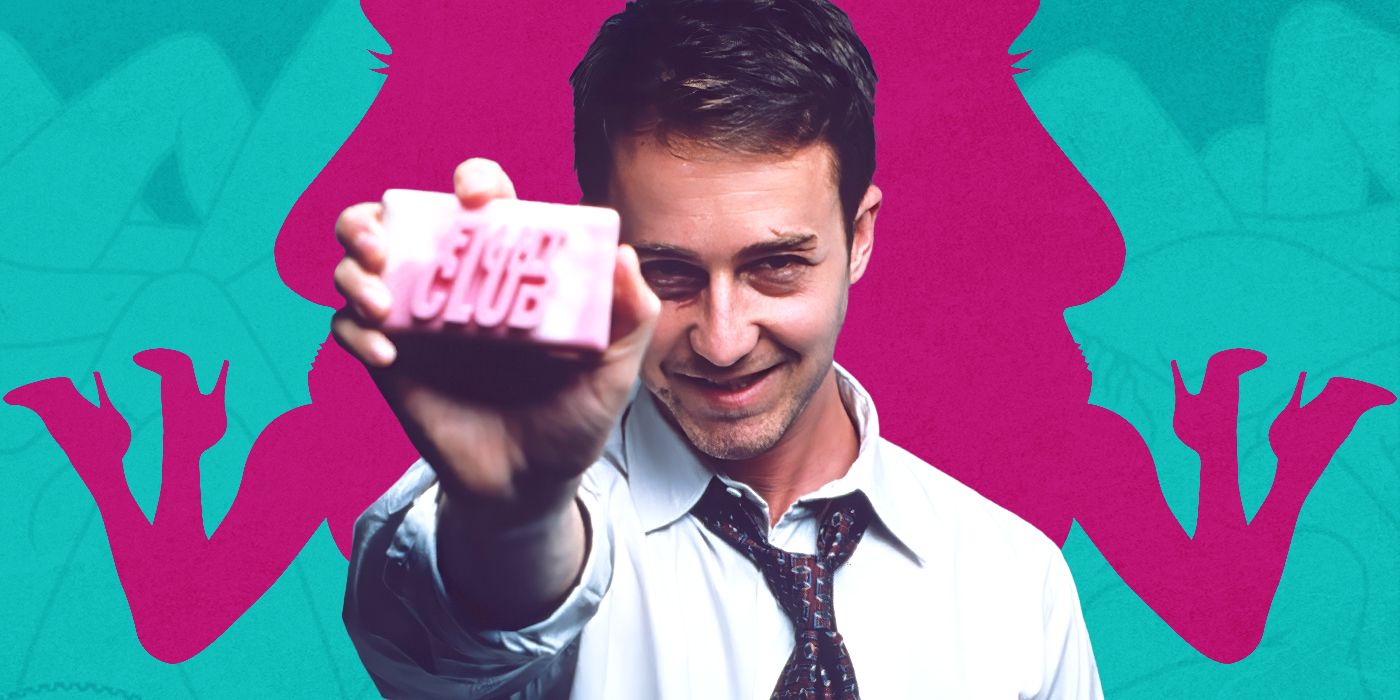The Big Picture
- Director David Fincher addresses the misunderstanding of his film Fight Club, expressing his disbelief that Tyler Durden is viewed as a role model.
- Fincher absolves himself of responsibility, claiming that he cannot control how viewers interpret his work and that symbols and language evolve over time.
- Both Fincher and author Chuck Palahniuk express their concern over the far-right and incel communities identifying with Durden, emphasizing that the character was never meant to be idolized.
Director David Fincher created an all-time classic with his 1999 satire Fight Club and 24 years later, it’s still being misunderstood. Most recently, the film has enjoyed a resurgence among the far-right, incels, and so-called alpha males who have seen it as a rallying cry for white men disenfranchised by modern capitalist society who feel the need to rebel against it all. Fincher has mostly remained out of these conversations until recently when, in an interview with The Guardian, he shared his thoughts on the far too common misinterpretation of the film. Specifically, he absolved himself of responsibility and expressed his disbelief at the conception that Tyler Durden (Brad Pitt) is a role model.
“I’m not responsible for how people interpret things… Language evolves. Symbols evolve,” he said during the interview. He acknowledged that the film has indeed become “one of many touchstones in their lexicography,” but he was adamant that this was never the intention. Fight Club, after all, is meant to show the descent of a group of fed-up men including Edward Norton‘s depressed office worker and Pitt’s charismatic Durden who fight each other into a homegrown terrorist group. Regarding those individuals who find that story inspiring, Fincher plainly says “We didn’t make it for them, but people will see what they’re going to see in a Norman Rockwell painting, or [Picasso’s] Guernica.”
While Fight Club certainly makes Durden out to be alluring and his underground world intriguing, it also shows how destructive his behavior is. The titular fight club creates camaraderie out of violence and rebellion against a world its members no longer feel is for them. The danger of Durden is particularly clear in the film’s controversial – at least in China – closing moments where, after Norton’s character kills off his alter ego Durden, he watches as buildings collapse and the world burns around him after Project Mayhem grows out of control. Fincher couldn’t reconcile why such a character would be so appealing. “It’s impossible for me to imagine that people don’t understand that Tyler Durden is a negative influence,” he continued. “People who can’t understand that, I don’t know how to respond and I don’t know how to help them.”
‘Fight Club’s Original Author Was Equally Unnerved By the Story’s Resurgence
It’s not just Fincher who feels this way about Fight Club‘s far-right audience. In another interview with The Guardian back in 2018, author Chuck Palahniuk, who wrote the novel Fincher’s film is based on, offered more pointed words of criticism for incels and other manosphere members who identified with Durden and the destruction he wrought. “It’s fascinating that the group that can’t get laid is now adopting the same language. It shows how few options men have in terms of metaphors: a skimpy inventory of images,” he said. “They have The Matrix – there’s a lot of red pill, blue pill stuff – and they have Fight Club.” He also reiterated that the story was more about identity, wanting to have an important place in the world and the terrifying paths it can lead down. Despite the differences between the film and the novel, the one place they meet is that Tyler Durden was never meant as someone to be idolized.
Fight Club is available to rent or buy in the U.S. on Prime Video. Fincher’s next film, The Killer starring Michael Fassbender, is slated to hit Netflix on November 10. Read our full guide on the director’s passion project here.
Fight Club
An insomniac office worker and a devil-may-care soap maker form an underground fight club that evolves into much more.
- Release Date
- October 15, 1999
- Director
- David Fincher
- Cast
- Edward Norton, Brad Pitt, Helena Bonham Carter, Meat Loaf, Zach Grenier, Richmond Arquette
- Runtime
- 139
- Main Genre
- Drama
Denial of responsibility! TechCodex is an automatic aggregator of the all world’s media. In each content, the hyperlink to the primary source is specified. All trademarks belong to their rightful owners, and all materials to their authors. For any complaint, please reach us at – [email protected]. We will take necessary action within 24 hours.
Khushi Patel is a science fiction author who lives in Austin, Texas. She has published three novels, and her work has been praised for its originality and imagination. Khushi is a graduate of Rice University, and she has worked as a software engineer. She is a member of the Science Fiction Writers of America, and her books have been nominated for several awards.


